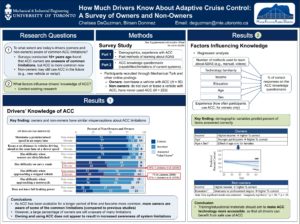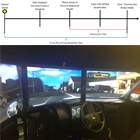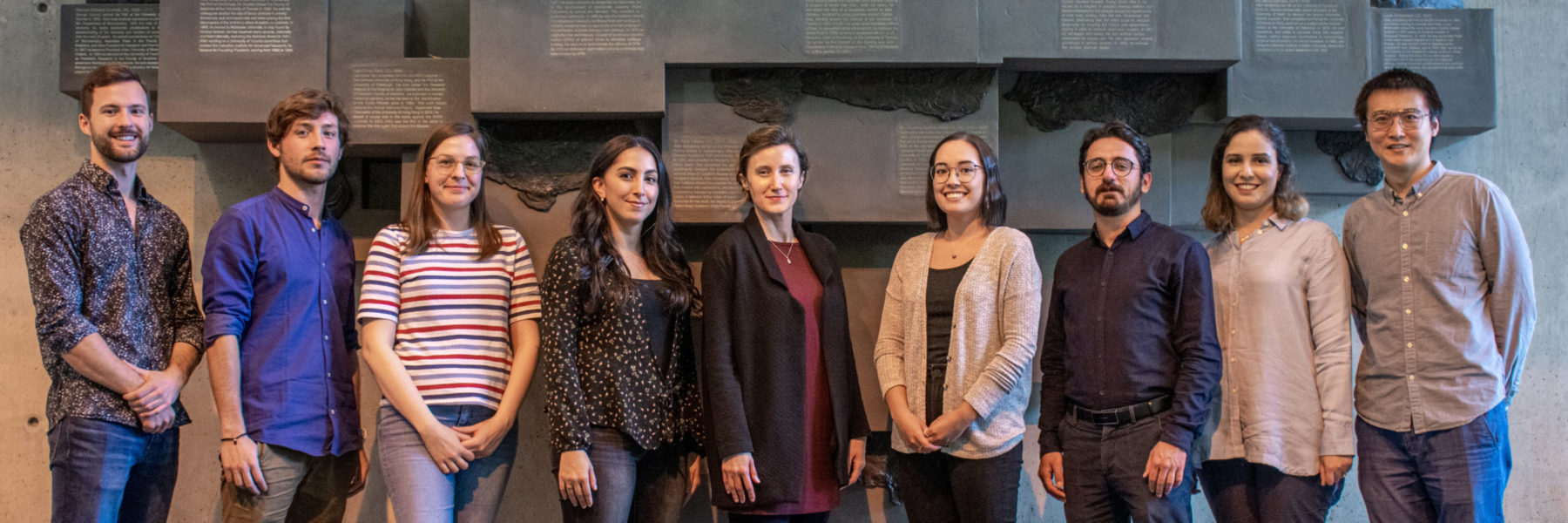About HFASt
The HFASt Lab conducts research on understanding and improving human behaviour and performance in multi-task and complex situations, using a wide range of analytical techniques. The application areas include surface transportation, healthcare, mining, and unmanned vehicle supervisory control.
Project Highlights
Training to improve drivers’ mental models of ADAS and support appropriate reliance
|
 Advanced driver assistance systems (ADAS) are available in an increasing number of vehicles, however, drivers receive little or no training on how to use ADAS safely. Through a survey, we found that many drivers overestimate the capabilities of adaptive cruise control (ACC) and lane keeping assist (LKA). In addition, drivers who owned vehicles with ACC and LKA did not seem to have a better understanding of these systems compared to drivers who had never used ACC or LKA. Our current research involves designing ADAS training and investigating its effectiveness at improving drivers’ understanding of ACC and LKA and supporting appropriate trust and reliance on these systems. Learn more about this research. Advanced driver assistance systems (ADAS) are available in an increasing number of vehicles, however, drivers receive little or no training on how to use ADAS safely. Through a survey, we found that many drivers overestimate the capabilities of adaptive cruise control (ACC) and lane keeping assist (LKA). In addition, drivers who owned vehicles with ACC and LKA did not seem to have a better understanding of these systems compared to drivers who had never used ACC or LKA. Our current research involves designing ADAS training and investigating its effectiveness at improving drivers’ understanding of ACC and LKA and supporting appropriate trust and reliance on these systems. Learn more about this research.
|
Perception-response time to emergency roadway hazards and the effect of cognitive distraction
 A driver’s ability to detect potential hazards and respond accordingly is crucial for traffic safety. The main objectives of this study are to (1) investigate the use of eye movement recordings combined with other motor response measurements in order to sub-divide a driver’s perception-response time interval when responding to an emergency roadway hazard, (2) to use this method of sub-diving to gain further insight into the effects of cognitive distraction on a driver’s ability to perceive and respond to an emergency roadway hazard by analyzing the effects at each stage. A driver’s ability to detect potential hazards and respond accordingly is crucial for traffic safety. The main objectives of this study are to (1) investigate the use of eye movement recordings combined with other motor response measurements in order to sub-divide a driver’s perception-response time interval when responding to an emergency roadway hazard, (2) to use this method of sub-diving to gain further insight into the effects of cognitive distraction on a driver’s ability to perceive and respond to an emergency roadway hazard by analyzing the effects at each stage. |
More projects…








